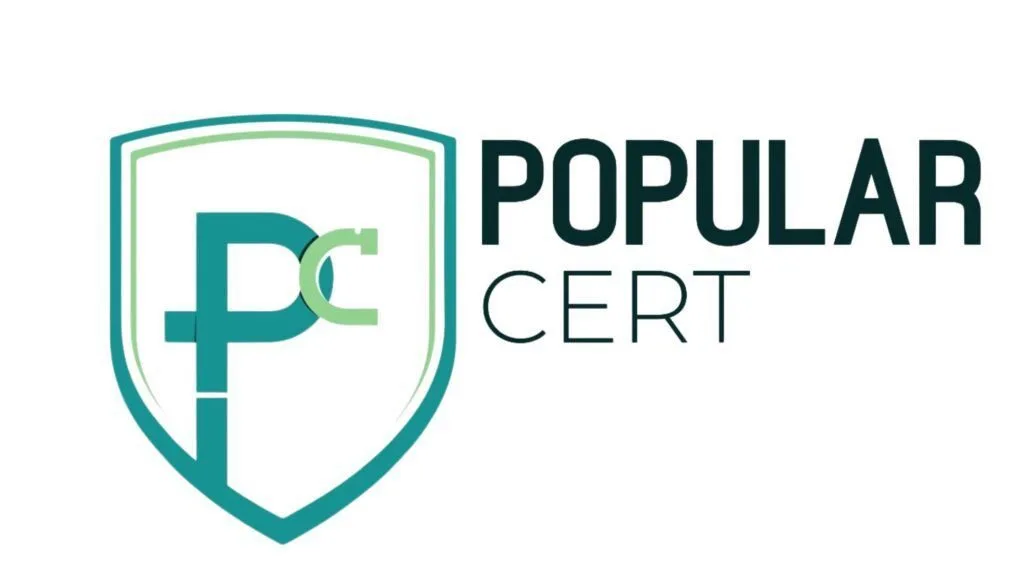ISO Certification Implementation for a Leading Healthcare BPO in Mysore – A Case Study

Introduction:
In the modern healthcare landscape, data accuracy, process efficiency, and information security are critical to ensuring both patient safety and regulatory compliance. A leading healthcare BPO organization based in Mysore, Karnataka recognized the need to formalize and optimize their business operations to support their rapid growth and client expectations. To achieve this, they partnered with PopularCert to implement internationally recognized ISO standards.
This case study outlines the journey of ISO implementation across multiple departments, showcasing how structured guidance led to operational maturity and successful certification.
About the Organization (Confidential)
The client is a fast-growing healthcare outsourcing provider offering a wide range of services including claims processing, payment posting, coding, credentialing, patient calling, sales transition, and revenue cycle management. With clients across the U.S. healthcare system, the organization handles sensitive medical data and financial transactions, making compliance with international standards vital.
PopularCert's Engagement Strategy
PopularCert’s Mysore-based consulting team adopted a phased approach to address operational weaknesses and bring the organization in line with ISO standards.
- Standardization of Core Processes
Each department’s activities were studied, and tailored SOPs were created to reflect accurate workflows. All documents were brought under a controlled document management system.
- Process Owner Training
Designated representatives, including the MR (Management Representative) and CISO (Chief Information Security Officer), were trained to own and monitor process implementation across departments.
- Internal Controls and Risk Management
PopularCert introduced risk identification mechanisms, incident response procedures, and corrective action frameworks aligned with ISO requirements
- Integrated Documentation & Compliance System
All process flows, policy documents, audit records, and training plans were centralized and maintained with proper versioning and access rights.
- Culture of Continual Improvement
The team emphasized gradual implementation, allowing existing processes to evolve without disruption. This ensured smooth adoption and long-term sustainability.
Challenges Identified During Gap Analysis
A comprehensive Gap Analysis conducted by PopularCert’s consultants uncovered the following key areas for improvement:
1. Lack of Documented SOPs and Process Clarity
Several departments operated without standard operating procedures. Existing SOPs were inconsistent and lacked version control or formal documentation practices.
Types Of Certification
- ISO Certification
- ISO 9001 Certification
- ISO 14001 Certification
- ISO 45001 Certification
- ISO 22000 Certification
- ISO 27001 Certification
- ISO 17025 Certification
- ISO 13485 Certification
- ISO 20000-1 Certification
- ISO 22301 Certification
- ISO 50001 Certification
- ISO 37001 Certification
- IATF 16949 Certification
- ISO 29001 Certification
- ISO 31000 Certification
- ISO 20121 Certification
- ISO 10002 Certification
- ISO 41001 Certification
Get Free Consultation
Our Clients


















2. Ineffective Communication Between Departments
Frequent miscommunication led to errors and delays. There was no clearly defined hierarchy or structured cross-functional communication framework.
3. Limited Document Control and Tracking
Departments were using documents without any formal tracking, versioning, or approval mechanism — increasing the risk of outdated or non-compliant documentation being used.
4. Training & Employee Awareness Gaps
Staff lacked structured training plans, which impacted their understanding of internal processes and compliance expectations.
5. Information Security Weaknesses
Although fewer in number, certain areas in data security and access control required strengthening to meet ISO information security standards.
Key Achievements
With PopularCert’s guidance, the organization successfully implemented and complied with:
Key improvements realized:
- Improved interdepartmental coordination and accountability
- Defined and measurable SOPs for all critical functions
- A formal document control process across all departments
- Enhanced employee training programs and orientation metrics
- Strengthened information security and data protection practices

Certification & Recognition
After internal audits and readiness assessments, the organization underwent external certification audits conducted by an accredited ISO certification body. Minor observations were swiftly addressed, and the organization achieved dual certification in record time.
Conclusion
This successful project illustrates how a structured, regionally accessible consulting engagement can transform an organization’s internal capabilities. Through PopularCert’s strategic support and practical approach, the healthcare BPO provider now operates with globally compliant systems that support both performance and trust.
FAQ
Why is ISO certification important for healthcare BPO companies in Mysore?
ISO certifications like ISO 9001 and ISO 27001 help healthcare BPOs establish quality-driven and secure operations. These standards ensure consistency, improve client trust, and support compliance with global data protection and healthcare information handling requirements (like HIPAA for US clients).
What is the difference between ISO 9001 and ISO 27001?
ISO 9001 focuses on quality management — making sure processes are effective, documented, and continually improving.
ISO 27001 is about information security — protecting sensitive data (like patient records, insurance details) from breaches and unauthorized access. Both work hand-in-hand for healthcare companies handling critical client information.
How long does it take to get ISO certified in Mysore?
The timeline depends on company size and readiness. For small to mid-sized healthcare BPOs, implementation and certification usually take 3 to 5 months, including documentation, training, audits, and compliance corrections. PopularCert ensures this timeline is realistic and smooth.
Will certification disrupt our ongoing operations?
Not at all — in fact, our approach is designed to integrate with existing workflows without causing downtime. We implement changes gradually and train staff along the way, ensuring business continuity while elevating standards.
